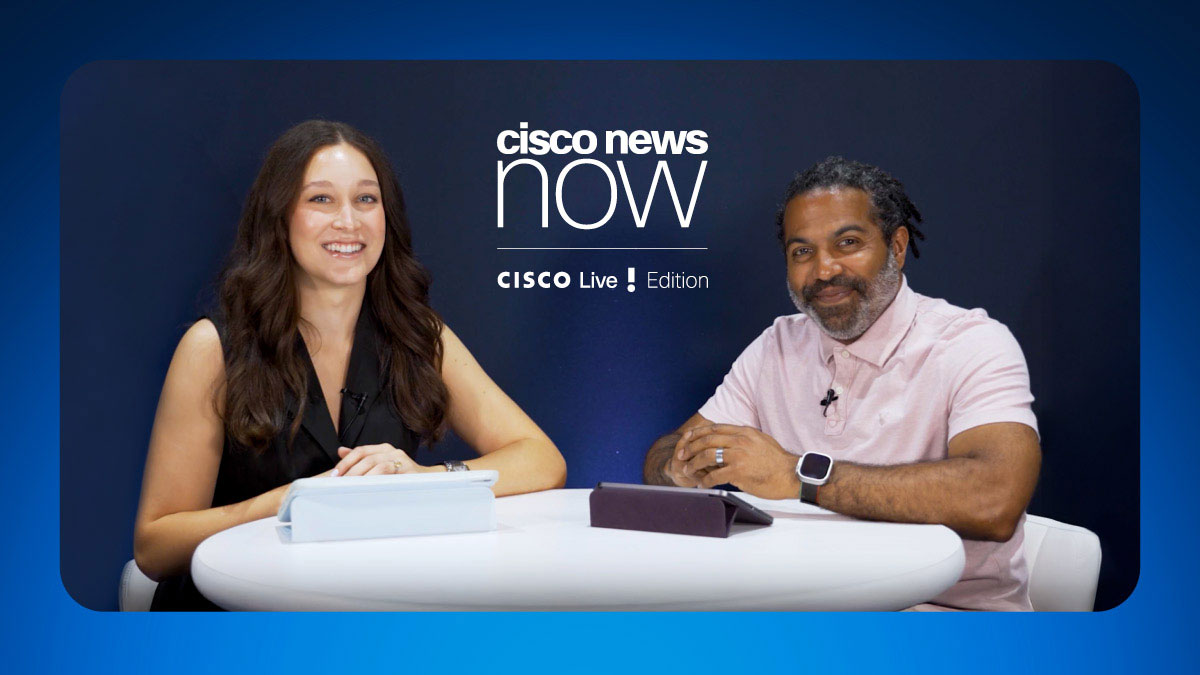SAN JOSE, Calif., April 30, 2001 Cisco Systems, Inc., today announced seven new software and hardware Internet Protocol (IP) telephony products to increase personal productivity, reduce operational costs and ensure business flexibility for corporate and branch office locations. These solutions take advantage of the Cisco centralized voice services model, further demonstrating the company's leadership and commitment to innovation in the voice-over-IP (VoIP) market.
The new software solutions include Cisco Personal Assistant, Cisco Unity 2.46 unified messaging, Cisco IP Integrated Contact Distribution (IP-ICD), the Cisco IP Phone Productivity Services (PPS) applications suite, the Cisco CallManager 3.1 call processing system, and an innovative Survivable Remote Site Telephony (SRS Telephony) feature that is now part of the Cisco IOS. Software. On the hardware side, Cisco is introducing the Catalyst. 4224 Voice Gateway Switch platform.
All of the IP telephony components fit within Cisco AVVID (Architecture for Voice, Video and Integrated Data)--the one enterprise architecture that provides an intelligent network infrastructure for today's Internet business solutions.
Currently in the pilot stage, The Dow Chemical Company is rolling out thousands of Cisco IP phones as part of its upgraded, global converged IP network a joint effort between Dow, Cisco, and EDS to create a global VoIP network.
"Cisco's new IP telephony applications play a pivotal role in the deployment of our new, converged voice, video and data network," said Dave Kepler, vice president of e-business and chief information officer for The Dow Chemical Company. "These new applications help support our corporate initiatives to make Dow the easiest company in the world with which to do business. We will use Cisco AVVID and the new voice applications to help grow our business and bring value to the company, our employees and our customers."
The Value of Centralized Call Processing and Application Hosting
With the new Cisco centralized voice services model, enterprises can cost-effectively extend voice applications and features from their corporate headquarters or data centers to branch office locations. This is accomplished without the need for additional infrastructure, equipment or office space. By centralizing Cisco CallManager and application servers, operational expenses are reduced and IT managers gain a higher degree of manageability and control over all data, voice and video applications throughout the enterprise. With this breakthrough approach, enterprises can guarantee all users consistent and transparent access to the same advanced applications and features, leading to significant increases in productivity even at small branch sites. By comparison, distributed applications in a private branch exchange (PBX) environment often result in a branch office receiving less capable or feature-limited applications relative to a central site or large regional office. In addition, the cost associated with placing a full-featured PBX in each branch office is prohibitive.
To address the need for redundancy in centralized call-processing environments, Cisco is introducing its new SRS Telephony solution. The solution serves as insurance in the event of WAN failure by intelligently auto-configuring Cisco multiservice routers to provide call-processing backup for IP phones in branch offices. Call processing is maintained during failures, ensuring that the IP phones are fully available and operational. Upon restoration of the WAN and connectivity to the network, the system automatically shifts call-processing functions back to a centrally located Cisco CallManager. SRS Telephony is available on the Cisco 2600 and 3600 Series modular, multiservice routers and the new Catalyst 4224 Voice Gateway Switch.
New Software Extends Personal Productivity and Enhances Customer Experience
Cisco is raising the bar for personal productivity with several new software-based products, including the Cisco Personal Assistant. This IP-based telephony application streamlines voice communications with personal call rules and speech recognition. Cisco Personal Assistant is scalable and interoperates with Cisco CallManager and Microsoft Exchange to allow users to verbally sort through voice mail and dial by name. With Cisco Personal Assistant users can establish conference calls from any telephone using voice commands instead of the telephone keypad. Its easy-to-use, browser-based interface allows users to set up rules for forwarding and screening calls in advance or in real time, without the assistance of a system administrator. With the Cisco Personal Assistant's speech recognition interface, users can use simple voice commands to retrieve, reply, record, skip, and delete messages. Calls can be forwarded to user-defined locations such as home, office, or mobile phones.
The next software solution Cisco announced today is Cisco Unity 2.46 unified messaging. This enterprise-class offering provides improved deployment and diagnostic support for large implementations, worldwide time zone and language support, and enhanced international localization capabilities. The combination of Cisco PA with Cisco Unity 2.46, offers a powerful, global solution for effective communications management. By unifying the message store and directory with the data network, Cisco Unity effectively manages e-mail, voicemail and faxes through a single inbox from any device (IP phone, cellular phone, PC) or location. Cisco Unity 2.46 also works seamlessly and simultaneously with both legacy-circuit and packet-based switches. It interoperates with both Cisco CallManager 3.1 and Personal Assistant. The flexibility of Cisco Unity 2.46 enables companies to maximize new and existing technology investments, elevate personal productivity, and improve responsiveness to their customers.
Rounding out the new personal productivity solutions is the Cisco IP Phone Productivity Services (PPS). This suite of extensible markup language (XML)-based applications turns the Cisco 7960 and 7940 IP phones into Internet thin-client devices that provide convenient access to a wide array of information on corporate and Internet Web servers. Using interactive soft keys and LCD displays that are larger than those of legacy phones, users have access to such services as e-mail, voice mail, calendar information, stock quotes, weather, and personal contact information. In addition, a development suite known as the E-Service Application Engine provides an open environment in which developers can create myriad new applications targeted at specific business needs in various vertical markets such as travel, financial services, and education.
To enhance customer response service in small call-center operations within an enterprise, Cisco is introducing the IP Integrated Contact Distribution (IP-ICD). This solution includes automated voice call distribution and supports custom contact interaction management for up to 48 concurrent agents. Cisco IP-ICD is one in a series of solutions built around the E-Service Application Engine. The IP-ICD seamlessly integrates with other Customer Response Applications, including Cisco IP Interactive Voice Response and IP Automated Attendant applications.
"Enterprises anticipate that developing and deploying IP applications across converged networks will provide increased productivity and operational cost savings over time," said Elizabeth Ussher, vice president of convergence for the META Group. "Once an enterprise has established a converged network infrastructure, it is the integration of applications that offers these benefits and provides compelling reasons for enterprise customers to consider moving to a converged solution."
Reducing Capital and Labor Costs and Increasing Flexibility
Cost-saving benefits are driven by new services and software solutions that are readily deployable on a converged network. These new services can be deployed with Cisco CallManager 3.1, the most recent version of the Cisco software-based call-processing system. Cisco CallManager 3.1 adds 15 new valuable features, including music on hold, gateway call preservation, application redundancy, and extension mobility. As its name implies, extension mobility allows an employee's phone extension, and all the properties associated with the extension, to be transferred to any Cisco 7960 or 7940 IP phone within a campus cluster through a simple log-on process. In addition, Cisco CallManager 3.1 comprises a comprehensive suite of management interfaces. The CiscoWorks2000 IP Telephony Management Solution will use those interfaces to provide tools that enable network administrators to easily configure, monitor, and troubleshoot their converged networks.
Reducing capital and labor costs are the primary objectives of the new Cisco Catalyst 4224 Voice Gateway Switch-an integrated Ethernet switching, IP routing, and voice gateway device that is targeted at small branch offices with up to 24 users. The Catalyst 4224 allows enterprises to realize a lower total cost of ownership in deploying data, voice, and video to their branch offices by lowering management and maintenance expenses, reducing operational complexity, and accelerating time to deployment. A single, remotely managed solution also enables enterprises to maintain branch offices without the need for onsite technical resources. The Catalyst 4224 can be used with Cisco SRS Telephony to provide backup services in the event of a WAN failure, making it a powerful platform for delivering all of Cisco's enhanced features and applications to branch locations in a simple and cost-effective fashion.
Pricing, Availability and Additional Information
The new Cisco IP telephony solutions available in CYQ2 include Cisco SRS Telephony, Cisco Personal Assistant, Cisco Unity 2.46, the Catalyst 4224 Voice Gateway Switch, and the Cisco IP-ICD. List pricing for all the products follows. SRS Telephony starts at US$750 for up to 24 users. Cisco Personal Assistant is US$4995 and includes the Cisco IP Phone Productivity Services suite. Cisco Unity 2.46 starts at $145 per seat. A voicemail only version is also available. The Cisco IP-ICD is US$4995. The Cisco Catalyst 4224 is US$12,995 and Cisco CallManager 3.1 is US$5995. The Cisco IP Phone Productivity Services suite will be available with Cisco CallManager 3.1 in the third quarter of 2001.
All of the new software applications are available on the Cisco MCS 7835-1000 Media Convergence Server and the new Cisco MCS 7825-800.
The award-winning Cisco Service and Support offerings provide presales network audit planning, design consulting, network implementation, operational support, and network optimization. By including service and support when purchasing Cisco IP telephony solutions, customers can confidently deploy a converged network architecture using Cisco expertise, experience, and resources. Cisco Service and Support has created a Web-based IP telephony readiness assessment tool that leads organizations through a series of questions tailored to their IP telephony deployment models. For more information about this tool, visit http://www.cisco.com/warp/customer/788/solution_guide.



